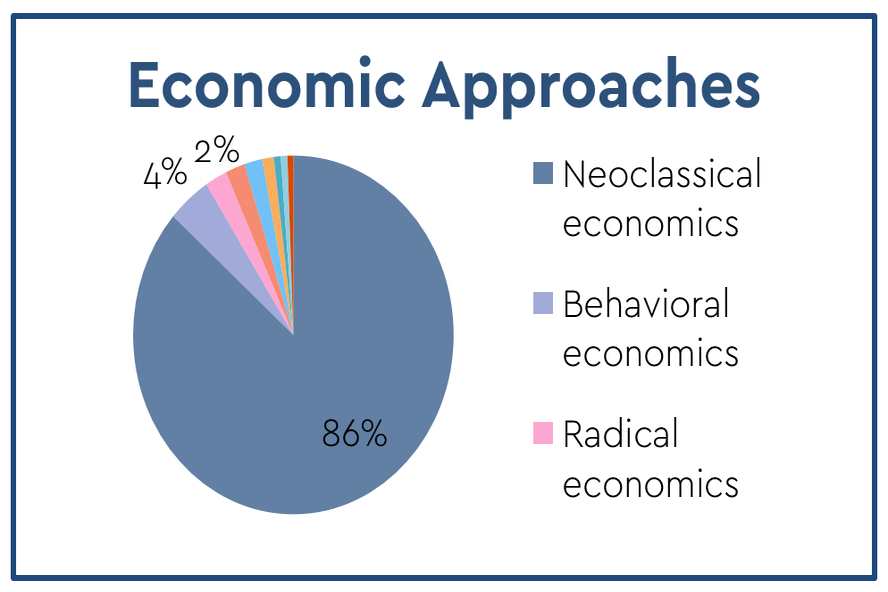Think further >> Teaching materials >> Economic approaches >> Starter pack
See the contents and start right away! Or read below what all these contents are!
Explanation of contents:
- Is economics a purely positive scientific as is always said in textbooks? Are economists the entirely neutral engineers that help politicians achieve their normative goals? Well, I guess you are already thinking of an answer. But read this 6 page article by John Davis to get a better understanding of the matter!
- Did you know that classical political economy, Marxian economics, Schumpeterian economics, the Austrian school of economics and business studies, all understand competition in a very similar way? But that this understanding is different from the way neoclassical economics understands competition? Get to know the different perspectives on competition, one of the most important concepts within economics, by reading this article by Lefteris Tsoulfidis.
- What is the current state of economics? And where is it going? Read two amazing articles on recent developments within economics. First, Methodenstreit 2013? by Spiegler and Milberg, gives an overview of the current debate over how economics should be reformed. Second, in The Complexity Era in Economics Holt, Rosser and Colander argue that neoclassical economics is being replaced by complexity economics.
- Get an idea of one of the most important economic but also political debates of the last century: Keynes vs Hayek. Who's analysis of booms and busts is correct? And who's solution for it should be followed?
- Read the introduction of Veblen his great book The Theory of the Leisure Class
- Watch the lecture of Anwar Shaikh in which he presents his new approach to understanding the economy (he starts at 6.00). He rejects neoclassical economics because it is a theory of a perfect world which does not resemble reality. He however also rejects post Keyensian economics because it stays within same framework as it tries to explain the world by arguing the world is imperfect. Instead he constructs a framework of real competition. Shaikh did however not have the arrogance or stupidity to think that he could come up with everything from scratch all by himself. He builds on the ideas of Adam Smith, David Ricardo, Karl Marx, John Maynard Keynes, Michal Kalecki, but also of the business literature.















